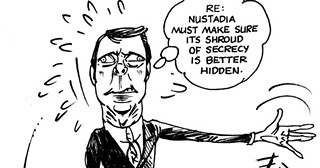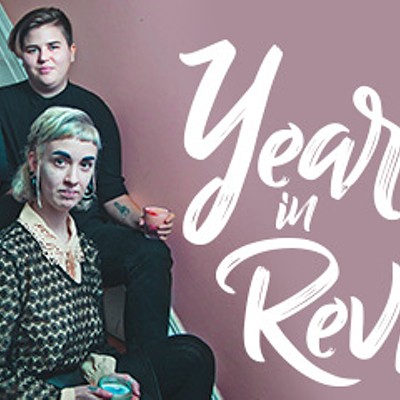It's easy to cry foul when city bureaucrats call for a tax increase, but I'm going to give lukewarm support for staff's proposed 2010-11 city budget.
First, the details. Staff is proposing an operating budget of $731.4 million. That reflects $16 million in new taxes ($56 for the average house in HRM), but also $19.5 million in budget cuts.
The budget is under considerable strain this year. The recession has reduced home sales (and therefore deed transfer tax revenue), and the province set a zero percent increase in the property assessment cap, restricting growth in property taxes to less than the normal measure of inflation---the Consumer Price Index---which is floating at around one percent. Worse, the municipal inflation rate---which measures the kinds of things cities have to pay for, like asphalt and construction---is up around four percent. In short, revenues are down, costs are up.
City council had told staff to find $14.5 million in budget cuts, but staff increased that to $19.5 million---and found the money in across-the-board cuts. The extra $5 million is needed to cover the increased provincial sales tax, which the city has to pay, too, and because staff increased the snow removal budget by $3 million.
That last bit is part of why I'm supporting this budget. Since 1999, the snow removal budget has been in surplus just twice; each of the other eight years, there's been a shortfall of between $6 and $11 million, but council and staff have been just been winging it, shifting millions of dollars around on the fly to make ends meet.
The extra $3 million still doesn't solve the problem, but it reflects the budgeting pragmatism of Cathie O'Toole, the director of finance who came into office two years ago and has been bringing order to a slip-slod, out-of-control budgeting process ever since. With O'Toole at the helm, budgets have become understandable, a tough debt policy has been adopted (city debt continues to come down from the stratospheric heights of last decade) and sensible reserve funding policies for new capital projects have been established, meaning that in the future we won't likely face the kind of crises management that has so often characterized city budgeting.
The one big increase in this year's budget is an extra $10 million additionally allocated to Metro Transit, which will be paid for through an increase in two transit taxes. That gets us 10 new articulated buses, 30,000 additional hours of service and some of the infrastructure required for future expansion, including a new bus barn and the expanded Bridge Terminal. The $10 million tax increase is sensible, and my bet is that just a few years from now, in the post-peak-oil era, we'll be criticizing it as not enough.
There's also a small increase in the general tax rate (of 1.2 cents per $100).
I'm not saying all is rosy at City Hall. It's not. Staff still embarks on bizarre obsessions like the "tax reform" effort, legal staff is unduly secretive (see "Political arena," page 4) and there continue to be bloated budgets in some departments. The biggest of those, however, is the police department, which seems immune to fiscal restraint, and whose budget is growing this year by $2.8 million. That's on top of a decision council made three years ago, against any evidence that they were needed, to add 30 new police officers to the force. That decision is costing us $3 million a year---fully half of the revenue brought in by the proposed increase in the general tax rate.
Last week, CAO Dan English suggested that a City Hall hiring freeze be extended to the PD, saving $100,000 this year, but the Board of Police Commissioners simply rejected that proposal, and council doesn't have the political backbone to make it stick. If residents are opposed to a tax increase, they should look first at the sacred cow of the police department.
I'll be following the budget debate in full this week and next at thecoast.ca/bites and on Twitter at twitcoast. For now, suffice it to say that the proposed budget isn't great, but despite the tax increases and budget cuts, the city is in a better position financially.


















